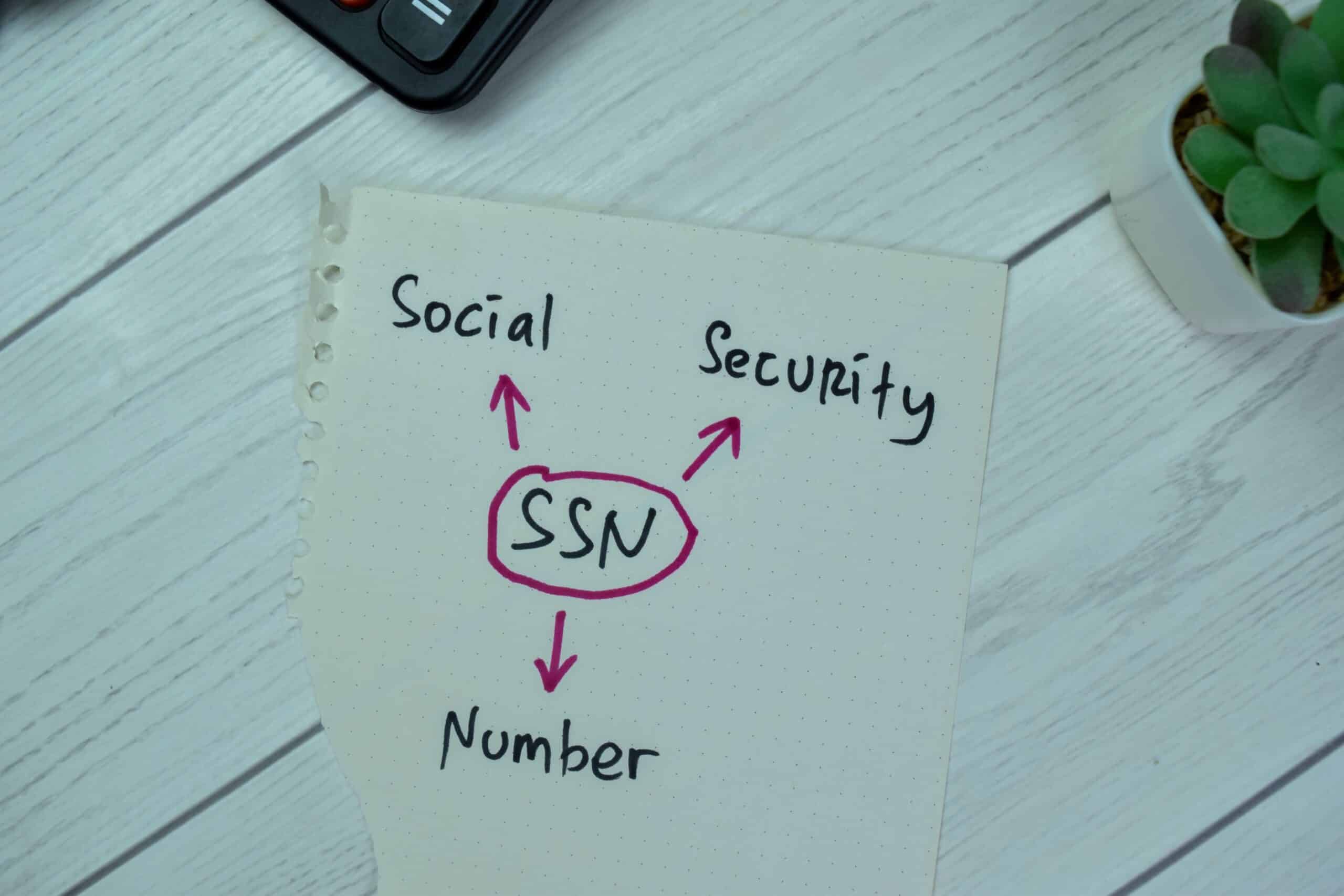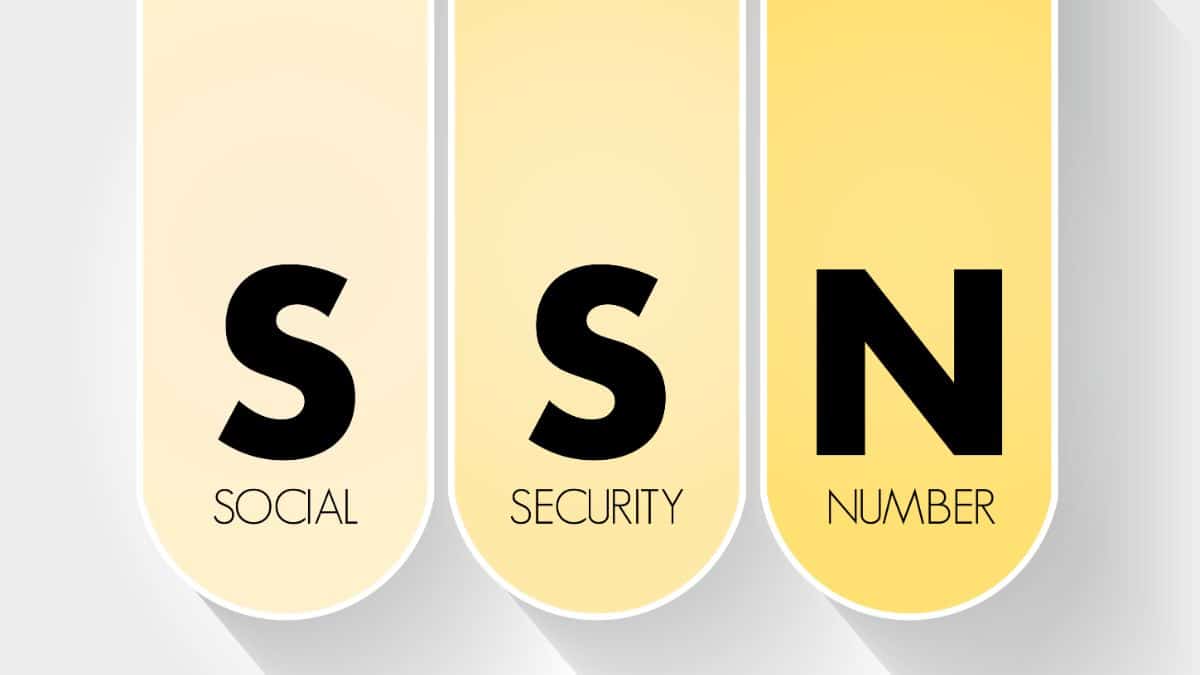As an online shopper, I’ve often asked myself: Is it safe to give Amazon my Social Security Number (SSN)? Well, let’s delve into this issue and find out. Just like any other online platform, Amazon requires certain personal information from its users in order to provide them with a seamless shopping experience. However, the thought of handing over such sensitive data can understandably raise concerns about privacy and identity theft.
Now let me clarify one thing right off the bat – Amazon doesn’t typically ask for your SSN unless there’s a valid reason tied to financial transactions or tax compliance. For instance, if you’re selling on Amazon as a merchant or using services that involve complex payment processes.
The key question then becomes: How secure is your information once you’ve provided it? After all, we’ve all heard about data breaches affecting even some of the most high-profile companies out there! Rest assured that Amazon employs robust security measures designed to protect your personal details from unauthorized access.
Understanding SSN and Its Importance
Let’s kick things off by getting a clear understanding of what an SSN (Social Security Number) is. It’s a nine-digit number that the U.S government issues to its citizens, permanent residents, and temporary workers. The primary purpose of this number? Well, it was originally designed to track individuals for Social Security purposes.
Now you might wonder why it’s considered so important. Your SSN serves as your unique identifier in the United States – think of it like your financial fingerprint! With just these nine digits, organizations can verify your identity when you’re applying for credit or even a job.
- You need an SSN to open any bank account.
- Credit card companies require one too.
- Landlords ask for this during rental applications.
- Even utility companies may want an SSN before setting up services!
In short, living life without one in the US would be quite challenging indeed.
But there’s more! Your social security number also plays a significant role in creating and maintaining records about your income history. It helps accurately report taxes owed on earnings over time — crucial information if we’re talking about benefits upon retirement or disability cases down the line.
However – here’s where caution must be exercised – because this little piece of data holds such importance; its misuse could lead to identity thefts with catastrophic consequences! That’s why protecting our personal info becomes paramount when dealing with online giants like Amazon. We’ll delve into those considerations soon enough but first let me provide some context around Amazon’s request for your ssn…
Why Does Amazon Ask for Your SSN?

Ever wonder why a giant online retailer like Amazon might ask for your Social Security Number (SSN)? Well, it’s not because they’re nosy or want to invade your privacy. They have a pretty legitimate reason.
One of the main reasons is tax-related. When you become an Amazon seller, you’ll be asked to provide this information primarily because of Internal Revenue Service (IRS) regulations. Essentially, if you sell more than 50 items in a calendar year and earn over $20k from sales, IRS requires that 1099-K form be sent by the payment settlement entity (Amazon). This form reports those income amounts and it needs your SSN to correctly fill out the document.
Another reason could be tied with their extensive background checks during employment application process. If you apply for job at Amazon, especially positions related to financial operations or sensitive data handling – they might require your SSN as part of identity verification procedure.
Here are few key points:
- Tax Compliance: It’s mainly about complying with U.S tax laws.
- Employment Checks: It helps them conduct thorough background checks.
- Identity Verification: Ensures that the person selling goods is who they claim to be.
In conclusion? Don’t fret when asked! But remember – always double check where requests come from and never share personal info unless absolutely sure about its safety!
The Legality of Sharing Your SSN with Amazon
Let’s dive right into the nitty-gritty. You might be wondering, “Why on earth does Amazon need my Social Security Number (SSN)?” Well, there are legitimate reasons for this request. For instance, if you’re a seller on Amazon’s platform or if you’re signing up for an Amazon credit card.
First off, let me reassure you that it is not illegal to provide your SSN to businesses such as Amazon when they ask for it. This practice falls under the Fair and Accurate Credit Transactions Act (FACTA). According to FACTA rules, businesses can ask customers for their SSNs in transactions where anti-fraud measures require identity verification.
However, while providing your SSN isn’t technically against the law, there are still privacy concerns that come with sharing such sensitive information. In our digital age where data breaches have become all too common – Equifax’s 2017 breach impacting nearly 147 million people comes readily to mind – many individuals hesitate before freely giving out their social security numbers.
In terms of safety measures from Amazon’s side:
- They use Secure Socket Layer (SSL) software which encrypts your personal information.
- They maintain physical and electronic safeguards in connection with collecting,
processing and storing personal data. - They follow Federal laws regarding protection of customer data
Even though companies like amazon take precautions yet we should also bear in mind that no system is foolproof!
So here’s what I’d advise: weigh up whether sharing your social security number aligns with how comfortable you feel about potential risks involved. Consider why they’re asking – is it necessary? What protections do they offer? And remember: It’s okay to say no if something doesn’t sit right! Always trust those gut instincts when it comes down to protecting yourself online!
Risks Associated with Providing Your SSN to Online Retailers

When you’re shopping online, it’s natural to be wary of sharing your Social Security Number (SSN). And for good reason. Handing over this sensitive piece of information opens up a Pandora’s box of potential risks.
First and foremost, there’s the risk of identity theft. With your SSN in their hands, cybercriminals can apply for credit cards or loans in your name. It could lead to financial loss and damage to your credit score that may take years to repair.
Another risk is related directly to data breaches. Large corporations like Amazon have been targets for hackers who seek valuable customer information stored within their databases. In 2019 alone, data breaches exposed nearly 8 billion records – an alarming statistic that underscores the danger.
- Year | Records Exposed
- —- | —————-
- 2019 | Nearly 8 billion
Moreover, once you’ve provided an online retailer with your SSN, they may use it for purposes beyond what was initially intended or agreed upon – even selling it on the dark web where such details fetch a high price.
Lastly but certainly not least significant is the difficulty associated with changing an exposed SSN compared to other forms of personal identification like bank account numbers or email addresses which are easier and less costly replace if compromised.
So while retailers might ask you for additional verification through means such as providing part or all of our social security number during transactions; tread carefully before doing so!
Steps Amazon Takes to Protect Your Personal Information
When I hand over my Social Security Number (SSN) to Amazon, I’m putting a lot of trust in them. But rest assured, they don’t take that responsibility lightly. They’ve got a number of measures in place to safeguard your personal data.
First off, let’s talk encryption. It’s like the digital equivalent of locking your front door at night – it keeps unwanted intruders out. All transactions on Amazon are done using Secure Sockets Layer (SSL) software which encrypts the information you input before it gets sent across the internet.
Then there’s their server infrastructure. My SSN isn’t just sitting around on some office desktop waiting for someone to stumble upon it; no way! Instead, Amazon stores our personal info on secure servers protected by high-end firewall systems.
But what if someone tries an online attack? Well, they’d have a tough time cracking into our data because all credit card numbers and SSNs entered into Amazon are stored as “tokenized” data—meaning they’re replaced with unique identification symbols that can’t be reverse-engineered back into our original information.
Lastly but importantly is employee access control – not everyone who works for this retail giant has access to customer’s sensitive information such as SSNs or credit card details; only those with specific authorization can view these details and even then only when necessary.
To sum up:
- Encryption: Your info is locked away safely
- Secure Servers: A sturdy home for your private data
- Tokenization: Credit Card & SSN numbers become uncrackable codes
- Employee Access Control: Limited eyes prying into your personal deets
So while handing over something as precious as my Social Security Number might make me feel uneasy initially – knowing how seriously companies like Amazon take security helps put my mind at ease.
Alternative Ways to Verify Identity on Amazon Without an SSN

If you’re like me, and the idea of handing over your Social Security Number (SSN) to Amazon makes you a bit uneasy, don’t worry. There are alternative ways to verify your identity without needing an SSN.
One popular method is by using a credit card. It’s pretty straightforward – when making your first purchase, simply enter your credit card details as requested. Amazon will then use these details not only for payment but also for identity verification purposes.
Another option is through mobile phone verification. With this method, I just had to provide my phone number during account creation or update it in my existing account settings if it wasn’t already there. A code was sent via text message which I entered into the provided field on Amazon’s site – voila! Verified!
For those of us who aren’t comfortable with sharing too much personal info online (like myself), we can opt for gift cards as well! Here’s how it works: buy an Amazon gift card from a physical store and redeem it during checkout while making a purchase on their website or app.
Lastly, there’s email verification – though less secure than other methods mentioned above due its susceptibility phishing scams etc., but still gets the job done when needed.
So next time that nagging thought pops up about whether giving out our SSNs online is safe or not – remember that there ARE other options available!
Expert Opinions on Sharing SSNs With E-Commerce Platforms
It’s a common question, isn’t it? Whether or not you should provide your Social Security Number (SSN) to an e-commerce platform like Amazon. This is a sensitive issue and expert opinions tend to lean towards caution.
The majority of experts strongly advise against sharing your SSN with any online retailers. They argue that such platforms typically don’t need this information to conduct business. More importantly, sharing your SSN can expose you to potential identity theft risks if the retailer’s security measures are compromised.
For instance, let me point out the Identity Theft Resource Center’s report from 2019. It noted there were 1,473 reported data breaches in the U.S alone which exposed over 164 million sensitive records – quite often these records include valuable information like SSNs!
| Year | Reported Data Breaches | Exposed Records |
|---|---|---|
| 2019 | 1473 | >164M |
Let’s turn our attention towards reputable sources like Federal Trade Commission (FTC). They reiterate that consumers should be wary about who they share their personal info with and stress upon limiting unnecessary disclosure of one’s social security number.
Moreover, some experts suggest alternatives for situations where providing an SSN seems unavoidable:
- Requesting if only the last four digits could be used.
- Asking why it is necessary and how will it be protected.
- Checking whether another form of ID would suffice instead.
But remember folks – under normal circumstances – there’s no valid reason for an e-commerce site needing your full social security number! So next time when you’re shopping online on sites like Amazon, consider twice before giving away precious personal details unnecessarily!
Conclusion: Weighing the Pros and Cons of Giving your SSN to Amazon
I’ve spent a good deal of time discussing the safety concerns around providing your Social Security Number (SSN) to Amazon. It’s a complex issue, one that requires careful consideration before making any decisions.
On one hand, there are definite benefits. The most significant being an enhanced verification process which boosts security for transactions and helps in preventing fraud.
- Enhanced Verification: By using your SSN, Amazon can confirm that it’s indeed you who is making the purchase or changing account details.
- Fraud Prevention: If someone else tries to use your account without authorization, having provided your SSN makes it harder for them.
But on the flip side, there are valid concerns about data privacy and potential misuse of this sensitive information:
- Data Breaches: No company is completely immune from hacking attempts. If a breach occurs at Amazon, hackers could potentially access customers’ stored personal data.
- Misuse by Third Parties: Although unlikely due to strict privacy policies at companies like Amazon; if they ever decide to share or sell customer information with third parties (legally), our personal info including SSNs might be compromised.
So should you provide your SSN? I’d say that depends largely on how comfortable you feel with these pros and cons. Consider how much trust you place in large corporations like Amazon when it comes down their handling sensitive personal information such as an SSN.
Remember though – no matter what decision you make – always ensure other elements of online safety are also maintained such as strong passwords and two-factor authentication systems where possible!



